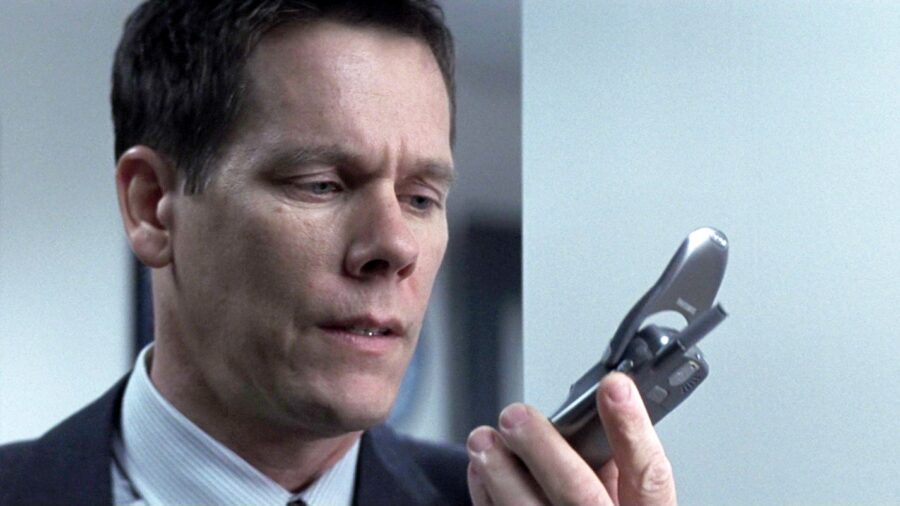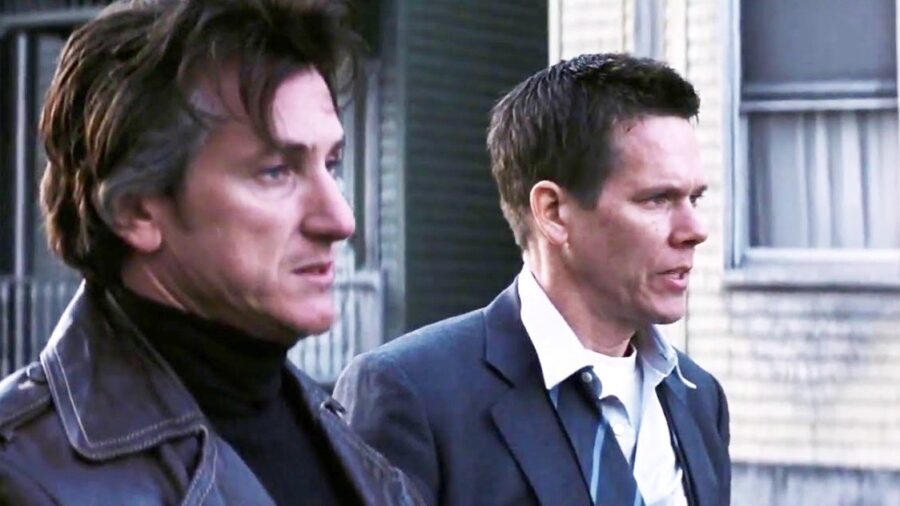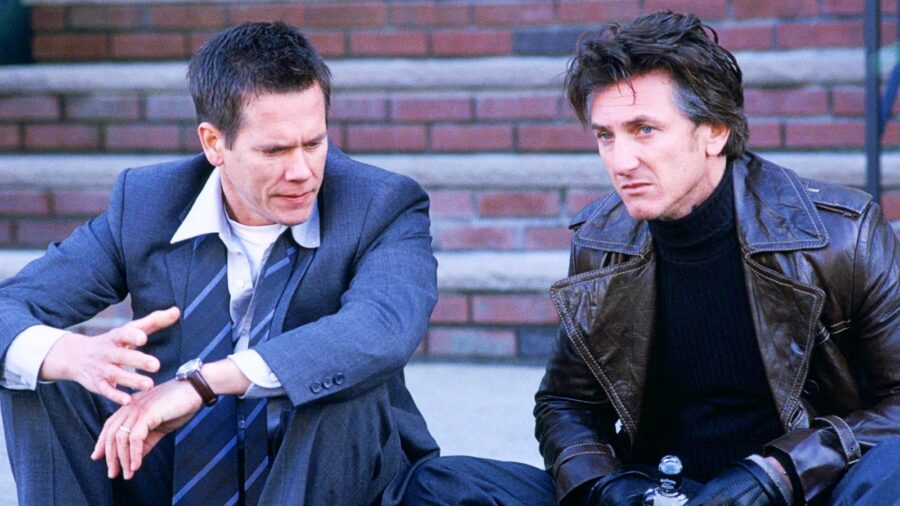Kevin Bacon’s Best Movie Is His Most Horrifying Ever
This article is more than 2 years old

Kevin Bacon holds an interesting place in Hollywood: over the course of his long career, he has been a movie star, a character actor, a goofy self-parody, a television actor, and, of course, that guy from Friday the 13th who totally gets an arrow through his neck. There is a reason why the game is called Six Degrees of Kevin Bacon and it is because the man has just been in so many movies. But we maintain that the very best Kevin Bacon movie of all is the 2003 gritty revenge drama Mystic River, which is currently streaming for free (with ads) on Tubi.
Mystic River stars Kevin Bacon as Sean Devine, a depressed Massachusetts State Detective whose wife (Tori Davis) has recently left him. However, the movie begins twenty-five years earlier, with Kevin Bacon’s character as a child in Boston along with his friends Dave and Jimmy playing in the street. They are approached by two men who claim to be police and abduct Dave, who is then sexually assaulted for days before managing to escape.

In the present day, Dave is now played by Tim Robbins and is a still-traumatized and fragile manual laborer. Jimmy is played by Sean Penn as an ex-con convenience store owner, now related to Tim Robbins by marriage and with a daughter preparing to elope with a secret boyfriend. In this already tense mix of dark secrets and trauma, Sean Penn’s daughter Katie is murdered.
Kevin Bacon investigates the murder of his childhood friend (now on the other side of the law) along with his partner Whitey (Laurence Fishburne) over the course of the movie, while Sean Penn hunts down the killer in an increasingly desperate, enraged journey. Meanwhile, Tim Robbins is acting even more erratically than usual, and suspicion inevitably falls on him and his mysteriously wounded hand.

Mystic River casts Kevin Bacon as an archetypal movie figure: the stressed, conflicted detective who is not sure who to trust. Kevin Bacon spends the movie trying to do the right thing: investigate a tragedy and solve a terrifying, awful crime, but at no point does he feel like a righteous man. In his own way, he is tormented by the horrific thing that happened to his childhood friend, but he has also removed himself from his community in a way that Sean Penn and Tim Robbins have not. He is a man both of a place and outside of it.
Mystic River is based on a novel by Dennis Lehane, the crime writer behind other neo-noir stories like Martin Scorsese and Leonardo DiCaprio’s Shutter Island and the Ben Affleck films Gone Baby Gone and Live by Night. Like many of Lehane’s stories, the Kevin Bacon movie is heavily indebted to the culture of Boston with its interconnected families and reputation for generational violence. But rather than feeling derivative, Mystic River feels like an artful distillation of noir tropes of murder, lies, and avoidable violence.
Much of the credit for the film must go to Clint Eastwood, who directed (and composed the musical score) Mystic River with his typical terse efficiency. If there is a living filmmaker with experience with stories about the nature and impact of violence, it is Eastwood. Since 1992’s Unforgiven, more and more of his work has ruminated on the consequences of the kind of wild violence his films once represented, and Mystic River is one of the finest examples.
Mystic River was an enormous commercial success upon its release, eventually grossing $156 million on an estimated $30 million budget. It was also universally critically beloved, nominated for six awards at the 76th Academy Awards, winning both Best Actor for Sean Penn and Best Supporting Actor for Tim Robbins. Despite his career-best work, Kevin Bacon was not nominated for any major movie awards, which can be inferred to be due to the calculation that Robbins would be a more viable candidate in his portrayal of an emotionally damaged man.
However, Mystic River will always stand as one of the high points of Kevin Bacon’s career, which already includes such iconic works as the monster horror classic Tremors, the real-life disaster film Apollo 13, and the successful comic book reboot of X-Men: First Class. He may not have gotten his due come Oscar time, but the work stands for itself.












